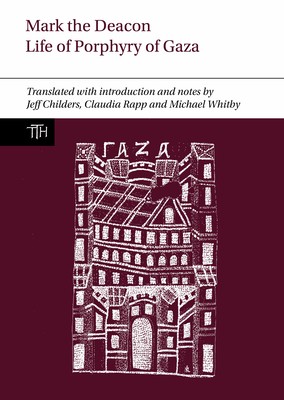
- We will send in 10–14 business days.
- Author: Jeff Childers
- Publisher: Liverpool University Press
- ISBN-10: 1836243340
- ISBN-13: 9781836243342
- Format: 14.8 x 21 x 1.8 cm, kieti viršeliai
- Language: English
- SAVE -10% with code: EXTRA
Reviews
Description
In Late Antiquity Gaza was an exceptionally prosperous city, with wealth derived from a flourishing wine trade across the Mediterranean, as well as an intellectual centre whose leading lights combined traditional classical and Christian learning. Bishop Porphyry is famous for effecting the transformation in the early fourth century AD of this thriving community from a bastion of pagan beliefs into a Christian city, primarily through the destruction of the main temple to the god Marnas and other pagan sanctuaries and the working of miracles for the benefit of the local population. Conversion was neither easy nor guaranteed, since the leaders of local society at the time were solidly pagan and prepared to mobilize violence to defend their traditional ways. His success required missions to the empire's capital, Constantinople, where he interacted with the Patriarch John Chrysostom and imperial authorities. On one occasion he managed with the help of Empress Eudoxia to outmanoeuvre Emperor Arcadius into acceding to his request for imperial authority and physical backing to secure the closure and demolition of temples. The two key versions of Porphyry's biography are here presented together in new translations for the first time.
EXTRA 10 % discount with code: EXTRA
The promotion ends in 23d.19:03:39
The discount code is valid when purchasing from 10 €. Discounts do not stack.
- Author: Jeff Childers
- Publisher: Liverpool University Press
- ISBN-10: 1836243340
- ISBN-13: 9781836243342
- Format: 14.8 x 21 x 1.8 cm, kieti viršeliai
- Language: English English
In Late Antiquity Gaza was an exceptionally prosperous city, with wealth derived from a flourishing wine trade across the Mediterranean, as well as an intellectual centre whose leading lights combined traditional classical and Christian learning. Bishop Porphyry is famous for effecting the transformation in the early fourth century AD of this thriving community from a bastion of pagan beliefs into a Christian city, primarily through the destruction of the main temple to the god Marnas and other pagan sanctuaries and the working of miracles for the benefit of the local population. Conversion was neither easy nor guaranteed, since the leaders of local society at the time were solidly pagan and prepared to mobilize violence to defend their traditional ways. His success required missions to the empire's capital, Constantinople, where he interacted with the Patriarch John Chrysostom and imperial authorities. On one occasion he managed with the help of Empress Eudoxia to outmanoeuvre Emperor Arcadius into acceding to his request for imperial authority and physical backing to secure the closure and demolition of temples. The two key versions of Porphyry's biography are here presented together in new translations for the first time.


Reviews